Biography
George Tovstonogov - Director and teacher, Creator of books on director. With his name, a whole epoch is associated in the life of the Soviet theater. Georgy Alexandrovich Tovstonogov was born on September 28, 1915 in the Georgian city of Tiflis, which is now called Tbilisi.
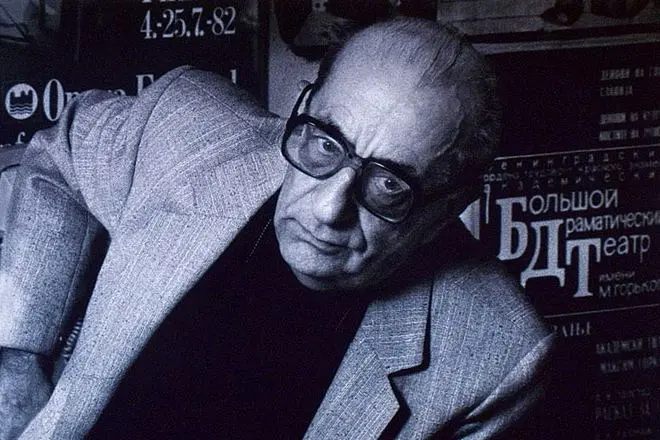
His father, the railway engineer, was in a good account in the Georgian Ministry of Runs and Messages. Tamara Poditashvili's mother graduated from the St. Petersburg conservatory with a vocalist diploma. The younger sister, Natel Tovstonogov, becoming an actor's wife Evgenia Lebedev, tied life with talented creative people.
Georgy went to school before peers and completed training at the age of 15. Already in those years, the teenager was unrestrained the theater. Uncle Boy worked as an artist in Tiflis's Dramaate and led him to watch performances. Father, seeing the interest of the Son, insisted on the choice of another life path. According to him, and with the assistance of a familiar George Tovstonogov, he became a student of the Tbilisi Railway Institute.
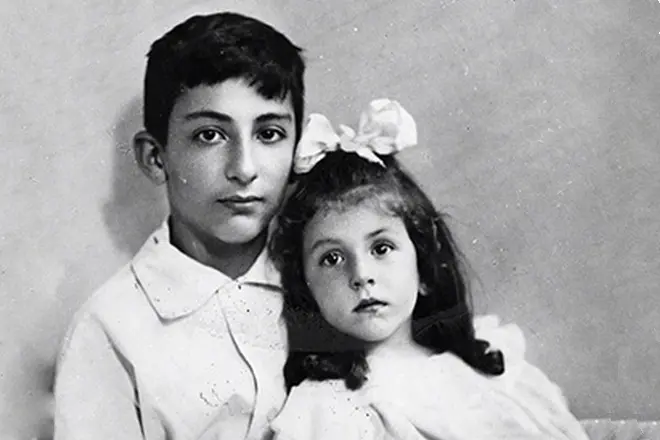
The son could not go against nature in favor of his parent. I studied the year, in 1931 he left the university, becoming an actor and assistant director Nikolai Yakovlevich Marshak. The potential Tovstonogov was so obvious that in 1933 Marshak entrusted him independent work. The performance on the work of Anton Pavlovich Chekhov was called "Offer" and was successful in the city.
The first good luck inspired the novice director. In 1933, Tovstonogov entered Gitis. He was too young to pass a competitive selection, so in the documents increased real age for 2 years. Student teachers were the famous director Andrei Mikhailovich Lobanov and Alexey Dmitrievich Popov.
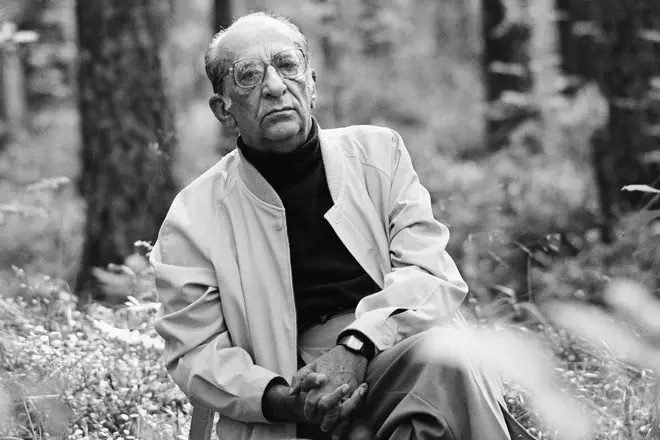
In parallel with learning, Tovstonogov continued to work in the Tyuze. The first play was followed by "marriage", "Musician team", "Blue and Pink", "Great Heretic", "Trojan horse" and other productions.
1937 broke all the dreams of a young man: the father was repressed. George automatically became the son of the enemy of the people. It was possible to forget about obtaining education in the metropolitan institute: it was expelled from the 4th year of Gitis. Tovstonogov clung to any opportunity to return, and it happened unpredictable. The abnormal phrase of Joseph Stalin's "Son for Father does not respond" allowed to recover on the course and with brilliance to complete the training in 1938.
Theater
Tovstonogov was invited to the post of director to the Tbilisi Drama Theater named after A. S. Griboyedov. There he brought acquaintance with the People's Artist of the USSR Akakius Hoorava. Thanks to the patron of Georgy, Alexandrovich became a teacher of the acting group at the Theater Institute. Shota Rustaveli. From that moment on, Tovstonogov began to perceive precisely as a professional director.
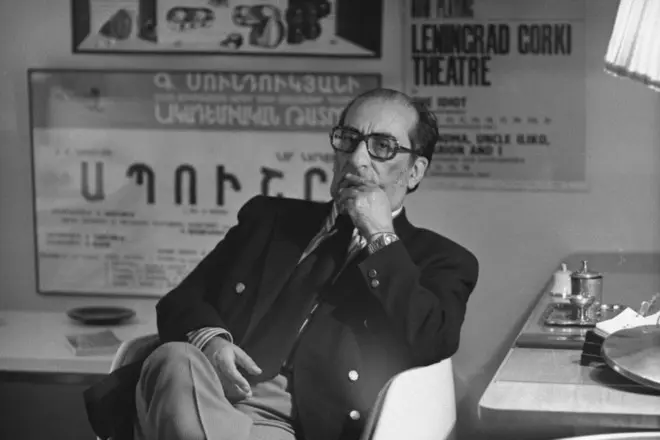
The first stage in the Tbilisi Drama Theater was the play "Children Vanyushina". Up until 1946, Georgy Alexandrovich worked with artists in his hometown, releaseing the performances "Kremlin Quararti", "Guy from our town", "School of Crossing", "Lenuska", "chanterelles".
Then he was invited to Moscow. From 1946 to 1949, he led the touring realistic theater and central children. In the second staged the sensational performances "somewhere in Siberia" and "Mystery of Eternal Night." Tovstonogov managed to combine work on compulsory productions in these theaters with directing performances in the studio of theater Operetta and the Russian Dramatic Theater in Almaty.
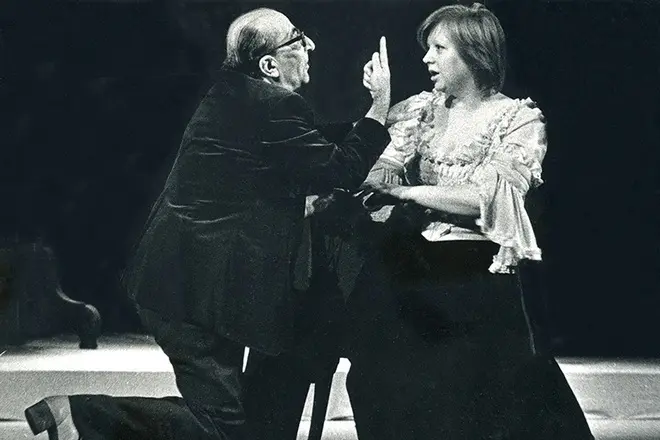
In 1949, the director received a new appointment and Leningrad became the second hometown for him. As the main director of the theater. Lenin Komsomol he spent the period from 1950 to 1956. This scene has become a house for him.
In 1956, on the eve of the 37th birthday, the troupe presented a new leader. He found himself the 11th in the account. Theater them Leninsky Komsomol at that time was in decline and among other Leningrad scenes was at the positions of the outsider. There was no logic in building a repertoire, the directors did not work as sufficiently with the actors, the viewer in the hall turned out to be random.
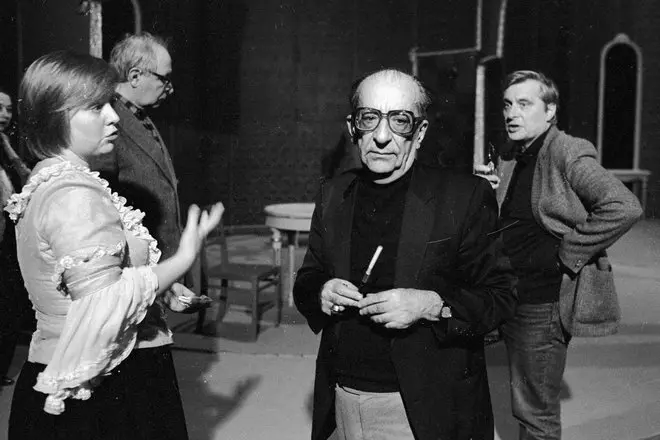
Nevertheless, the troupe gathered stars. Artists such as Elena Granovskaya, Olga Casico, Vasily Sofronov, Vitaly Polikamaco, were waiting for a person who could direct the theater in a different course.
Changes conducted by the master were cardinal. The director has updated the troupe, quitting about 30 artists. His main landmark was masters and young actors. The main goal was the return of the former viewer and the invitation of the new one. Three premieres were designed to do this: "Sixth Floor", "Unnamed Star" and "When Acacia Flowers". The last in the city became the audience in the towns.
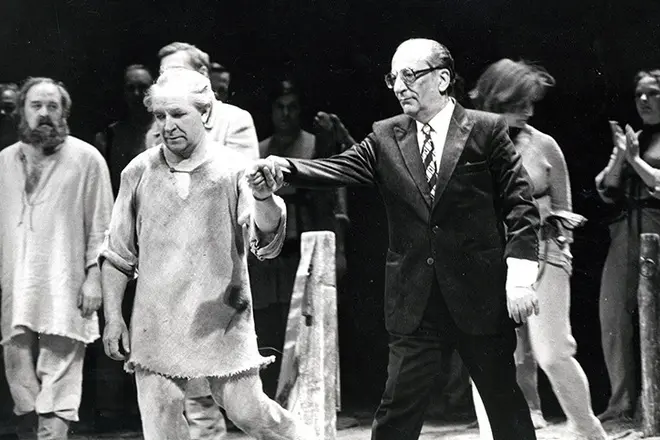
The atypical director, interesting miceanssen, the work of artists with space and the viewer made itself felt. Lightweight and cheerful layout bribed with liveliness and lyricity. The auditorium of the theater was filled with the public. The next play in the formulation of Tovstonogov became "Fox and grapes". He came out after 3 months and opened a series of programmes that have formed a new, current and consonant time of the repertoire.
George Tovstonogov was realized as a director and teacher. Carefully working with the actors, he guided them, helping to reincarnate and improve himself in the profession. The producer managed to negotiate the troupe and the viewer. He improved the methods, technique and protrusion skills.
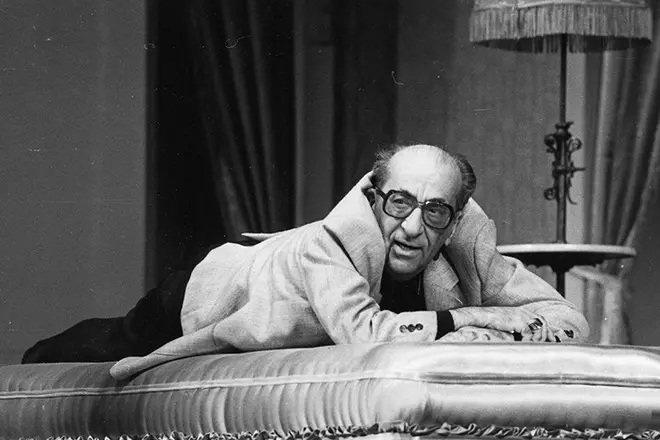
The director lived in the scene, rehearsals and premieres than the respect of colleagues and employees, theatrical community and the public won. The theater has gained a confident leader and consolidated the title of one of the best in the city.
The passion for the artists and the appearance of its own viewer proved that the Tovstonogov method is the most effective. Petersburgers and tourists considered their duty to visit the premieres of a talented figure. For 33 years, Georgy Alexandrovich served as director of the theater, whose name now sounded throughout the country.
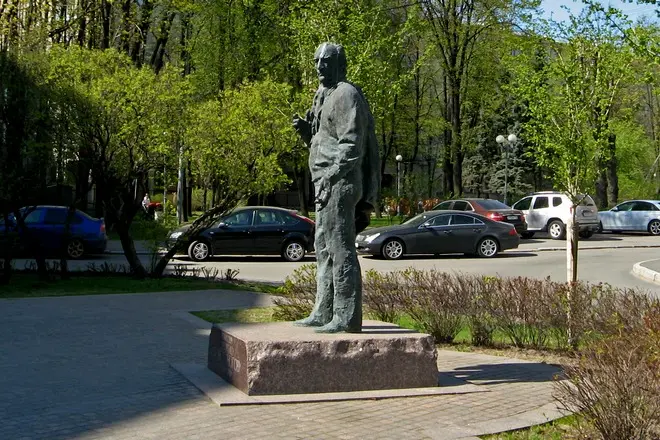
For his work, he was awarded Stalin and Lenin awards. Analogs did not exist on the performances of Tovstonogov, and the director studied at the master, adopting the features of creative manners. The director helped debound the playwrights Alexander Volodin and Viktor Pink.
The performances of Tovstonogov walked in Russia, Poland, Finland, Bulgaria and Germany. He produced telepostasovka and worked on the radio. Since 1957, he was in the editorial board of the magazine "Theater" and from 1964 he was the chairman of the Presidium of the All-Russian Theater Society.
In 1958, George Tovstonov began to teach in Lirtmake, and in 1968 he received the status of a doctor of art history. From the 1970s he was heading the department of director at the Institute. His performances set with students were widely known in Leningrad and other cities.
Personal life
The biography of Georgy Tovstonogov is closely intertwined with theatrical work. His personal life is full of romantic hobbies associated with the profession. The director fell in love, sympathized, but to create a real family, he always waited for a worthy woman who could create an atmosphere and make akin to the fact that he reigned in his parents' house.
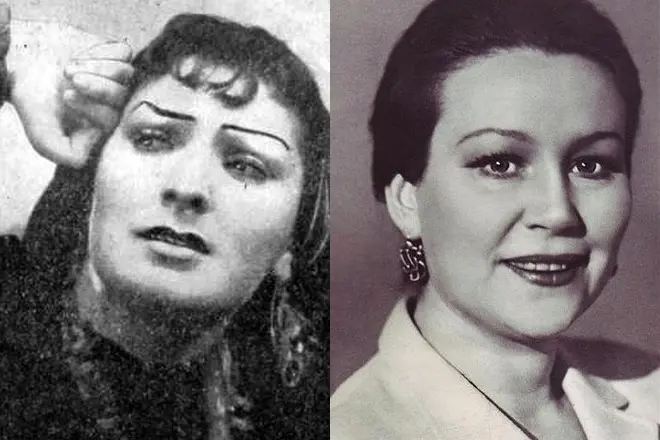
Tovstonogov believed that the satellite of life must be a creative person. His first wife became the actress Salome Kancheli. The wedding took place in 1943, and after 2 years, the newlyweds divorced. Favorite children, sons of Nikolai and Alexander appeared in marriage.
In 1958, Tovstonogov married the second time. The choices turned out to be an actress Inna Kondratieva. But after 4 years and their union broke up.
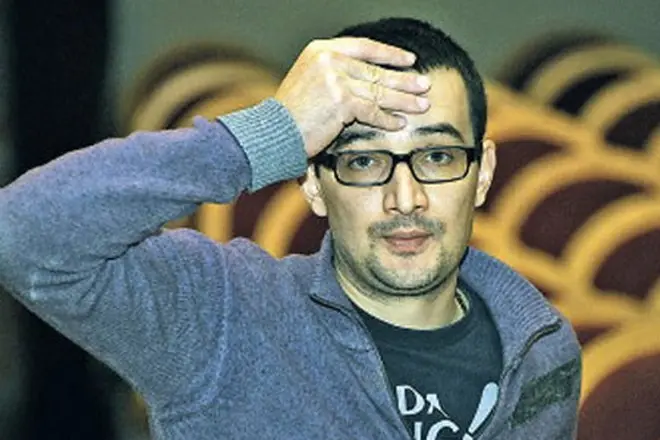
Children of the director and grandson went in the footsteps of a great relative. They were also fascinated by the director. The sons had their own manner in creativity, and Georgy Tovstonoga Jr. subconsciously went on the way, who chose his grandfather. In 2012, the life of the grandson's grandson was tragically broken.
Death
Tovstonogov headed the favorite theater until the last days of life, not missing performances and rehearsals, regularly conducting conversations with colleagues. On May 23, 1989, the premiere of the play was scheduled. By coordinating the date, the director sat in the car to go home, but never got to the destination.
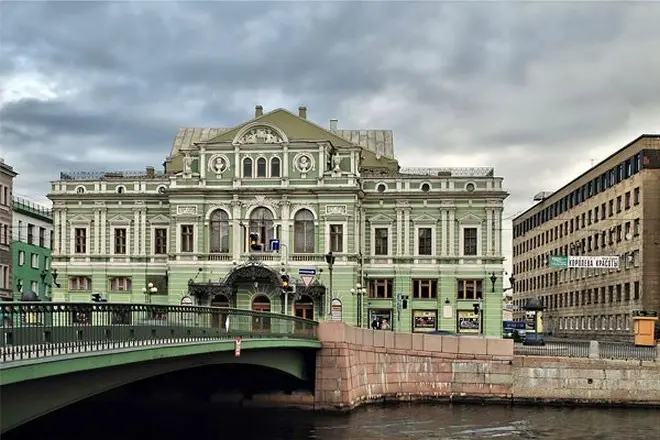
The cause of the death of the director has become a stop of the heart. For theatrical Petersburg, it turned out to be a tragedy. There was no man who inspired several generations. George Tovstonogov was buried at the Tikhvinsky cemetery of Alexander Nevsky Lavra, in the necropolis of art masters. A monument in the form of crucifixion is established above the burial.
After the death of the director theater them. Leninsky Komsomol appropriated a new title: Great Drama Theater named after George Alexandrovich Tovstonogov. Photo director and today decorate the lobby and halls of the building. Pupils and followers are often divided into interviews memories of the work and instructions of the scene.
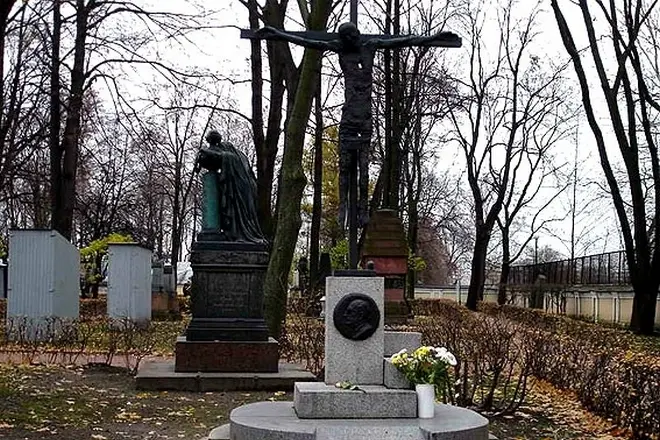
The creative heritage of Tovstonogov is the books: "Modernity in the modern theater. Conversations about the director "," On the profession of the director "," Circle of Thoughts "," Classics and Modernity "," Scene Mirror ".
In memory of Georgia, the documentary films "live, think, feel, love ...", "Legends about Gogh", "reflections" were removed.
Settings
- 1955 - "Optimistic tragedy"
- 1959 - "Varvara"
- 1959 - "Five evenings"
- 1962 - "Woe from Wit"
- 1965 - "Three sisters"
- 1966 - "Moisan"
- 1969 - "King Heinrich IV"
- 1972 - "Auditor"
- 1972 - "Hanuma"
- 1974 - "Three Wheat Bag"
- 1975 - "Horses History"
- 1983 - "Death of Tarelkin"
- 1985 - "On all sages of pretty simplicity"
- 1987 - "At the bottom"
